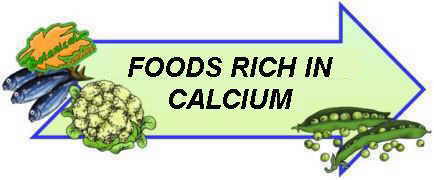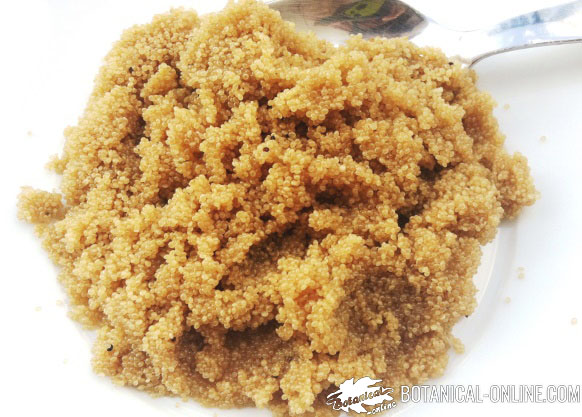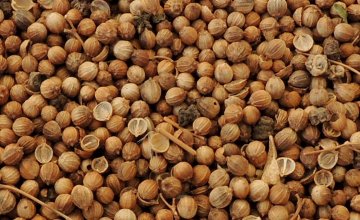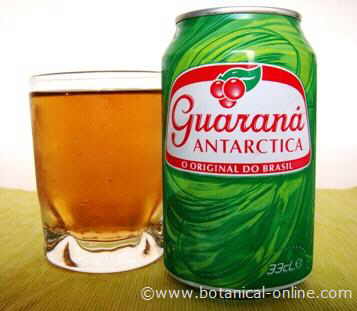Contents
- 1 Do we need to eat dairy products?
- 1.1 Is milk good or bad?
- 1.2 Is it necessary to eat milk to have calcium?
- 1.3 Myth of milk and osteoporosis
- 1.4 Reasons why milk is not recommended
- 1.5 Lactose intolerance and milk allergy
- 1.6 Problems of milk and dairy
- 1.7 Dairy products do not protect against osteoporosis
- 1.8 Skimmed milk for cholesterol?
- 1.9 Is it recommended to buy whole or defatted dairy products?
- 1.10 Toxic waste in milk and dairy
- 1.11 Absorption of calcium according to food sources
- 1.12 Are vegetable drinks a good substitute for milk?
- 1.13 Problems to eliminate milk from the diet
- 1.14 Not all foods with milk are dairy
Do we need to eat dairy products?
Is milk good or bad?
There are many myths about dairy consumption. Even among professionals there are discrepancies of opinion about this group of foods. The concern about whether a food with such a tradition of consumption can be harmful has grown so much that its consumption in countries like Spain has decreased by 20% in just 10 years.

Recommendations on milk consumption
In general, milk and dairy products are not bad for health, in healthy people and when taken in adequate amounts. They are really a type of very nutritious foods that provide high quality proteins, fats, B vitamins (although little B12) and many minerals such as phosphorus and calcium.
Is it necessary to eat milk to have calcium?
Dairy products are a very good source of calcium, which does not mean that everyone has to consume them daily to have proper bone health, or to get all the calcium that is needed daily.
Myth of milk and osteoporosis
First, for strong bones, much more than calcium is needed. There are no miraculous foods with calcium to protect the bones, but good bone health depends on exercise, sunbathing, not smoking, and various dietary factors, beyond calcium. On the other hand, in case of having high needs of this mineral, it is possible to obtain it without resorting to dairy products.
Reasons why milk is not recommended
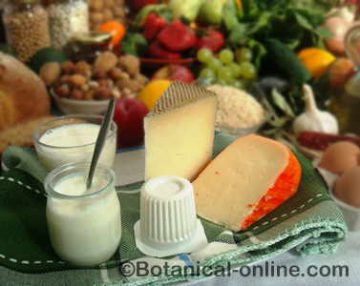
Some people eliminate milk from their diet for health reasons, such as intolerances, allergies, or certain diseases.
In other cases, also by vegetarianism or environmentalism, they already consider that the conditions in which the animals are raised are not respectful, or that it is not sustainable to maintain the consumption of dairy products on a large scale due to the large amount of resources that are needed.
Lactose intolerance and milk allergy
Milk lactose is a sugar that can cause gas and intestinal problems in people with deficiency of the enzyme lactase.
People who do not have this enzyme and have lactose intolerance sometimes use milk without lactose (which is obtained by adding enzymes to milk that degrade lactose into glucose and galactose, a relatively new milk product), or enriched plant drinks, naturally lactose free.
Depending on the degree of intolerance, in some cases you can eat yogurt and cheeses, which contain less lactose. Goat cheese and goat yogurt usually contain less lactose than that made with cow’s milk.
This intolerance should not be confused with people with milk allergies, who have serious problems when ingesting milk due to casein, a protein present in milk and all its derivatives. These people can never be given any type of milk, nor in small portions, because their immune system reacts violently to these foods producing inflammation and other adverse effects that can be very serious.
Problems of milk and dairy
In addition to its sugar (lactose), another component present in milk that has been much discussed are milk proteins. Milk naturally contains growth hormones for the calf to grow. Some studies show that consuming milk and dairy increases the levels of IGF-1, a growth hormone in humans. This hormone is related to the appearance of severe acne, and it is believed that it could worsen some diseases related to insulin resistance such as polycystic ovarian syndrome (PCOS) and diabetes. The early introduction of milk in children may increase the risk of suffering from asthma and type 1 diabetes (study, study, study, study, study).
Milk and dairy products are also not recommended in case of autoimmune diseases, such as lupus, arthritis, irritable bowel syndrome, Crohn’s disease, or leaky bowel syndrome. Generally, the dietary protocol consists in eliminating the dairy for a time to see if they remit or improve the symptoms. Then, they are reintroduced to observe tolerance. In these cases you must go to a duly qualified dietitian to avoid deficiencies and correct the diet, since only eliminate dairy products is not a treatment.
Dairy products do not protect against osteoporosis
There are some myths created around calcium in dairy. Not consuming milk or dairy does not produce weak bones or increased risk of osteoporosis. This is evidenced by a meta-analysis published in 2005 in which more than 39,563 women and men were studied, in which no relationship was observed between low milk intake and risk of fractures (study, study)
- In the risk of osteoporosis many factors take place such as, for example, sedentary lifestyle, excess sugar in the diet (pastries, cookies, flours, …), excess salt, excess animal protein, carbonated drinks, tobacco, chronic stress , a diet poor in calcium, ...
Skimmed milk for cholesterol?
The problems caused by milk sugar (lactose intolerance) and its proteins (caseins, hormones) have been discussed. But what about their fats and cholesterol?
According to the dietary guidelines published by the USDA in 2015, dietary cholesterol is not a factor that should worry us since there is no evidence that consuming foods high in cholesterol increases blood cholesterol. (See: Myth of the egg and cholesterol)
Having high cholesterol can depend on many factors such as stress, consumption of too much sugar, white bread or refined, sedentary lifestyle, genetics, certain diseases, … Or a set of these factors.
In addition, dairy fat has not proven to be harmful, quite the opposite: it provides a component called GLA (gamma linolenic acid), which may even have a positive effect on cardiovascular health.
Is it recommended to buy whole or defatted dairy products?
It seems that, in healthy people, it is advisable to choose low-fat dairy products, such as milk, yogurt (unsweetened) or fresh cheeses. It is not necessary to buy completely defatted dairy products because the fat percentage of these products fits perfectly in a healthy diet context. For example, as the recommended pattern in the Mediterranean diet.
Toxic waste in milk and dairy
Xenobiotics are toxic that are ingested through food (both from animal and plant origin, although its presence is greater in animal products), which must be eliminated from the body. Milk and dairy products contain dioxins, which are also found in eggs, meat and fish, and , in smaller quantities, in vegetable oils and vegetables.
Residues of veterinary drugs and hormones that are administered to these animals to increase milk production (BST or bovine somatropin, a growth hormone) can also be found in milk and dairy products.
Absorption of calcium according to food sources
Scientific studies have shown that calcium is absorbed differently depending on what food is found. The percentage of absorption of calcium from dairy products is 30%, while that of broccoli and cauliflower is 60%.
Therefore, 1 plate of broccoli is as good source of calcium as 1 glass of milk, because they contain practically the same amount of calcium, and also the one found in broccoli is absorbed more. Algae, tahini and nuts are also foods concentrated in calcium.
* More information: The best foods rich in calcium
Are vegetable drinks a good substitute for milk?
Vegetable drink can be a good substitute for milk in terms of its calcium content (only when they are enriched in calcium), but you should always ensure the presence in the diet of naturally calcium-rich plant foods (not enriched) , such as almonds, sesame seeds, legumes, algae, etc.
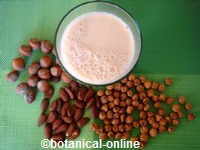
Vegetable drink Not all contain calcium, it should be consulted on the label
In vegetarian diets in which milk is not taken, attention should be paid to the supply of proteins, since eliminating dairy products can lead to a significant decrease in daily protein intake. If food of animal origin is not taken, vitamin B12 supplements should be taken to prevent megaloblastic anemia.
Although they are of vegetable origin, vegetable drinks are a processed food. Whole almonds provide vegetable proteins, healthy fats, calcium, magnesium, antioxidant vitamin E, folic acid, … Almond milk only provides calcium (only enriched), without the other nutrients.
- In a healthy diet, calcium should not come only from dairy or enriched vegetable drinks, but should always be included (whether they are dairy products or not), calcium-rich foods of vegetable origin, due to their high nutritional value.
Calcium in the vegetarian and vegan diet
Problems to eliminate milk from the diet
Because of some of the reasons discussed above, some professionals sometimes recommend reducing or avoiding the consumption of milk or milk. In these decisions the advice of a dietitian is always recommended.
Eliminating milk and dairy products, on its own, is not a treatment and does not improve any disease. A global treatment is necessary if what is desired is to improve a disease. For this reason, dietary changes should be made under the supervision of a nutritionist working with your doctor, so that there are no nutritional deficits in the diet.
Dairy products are not necessary when there are other sources of protein, calcium and vitamin B12 in the diet. In general, in healthy people you can take a diet rich in calcium if you consume abundant algae, legumes, nuts, protein-rich foods, seeds and green vegetables.
- When high levels of calcium are required in the diet (children, menopause, pregnancy, lactation, …), the consumption of vegetable drinks enriched with calcium is recommended.
Not all foods with milk are dairy
Within the group of dairy foods sometimes products that are NOT healthy are included, such as pastries, chocolates and milk products.
It is more nutritious to add fresh fruit to yogurt than to buy yogurt sweetened with fruit, because it provides more fiber, vitamins and antioxidants, and less sugar.
These foods are not healthy mainly because of their excessive content of added sugars and bad fats. Also, unlike milk, cheese and yogurt, they are generally processed foods, with excess calories, not very nutritious and with little protein and calcium.
Even yogurts with fruit and sugary yoghurts can contain a lot of added sugar or a lot of fat (like creamy yogurt or mousse).
- The most recommended is the natural yogurt without sugar, and add fresh fruits or nuts, which would result in a much healthier combination.
Fruits rich in calcium
![]() More information on vegetal drinks.
More information on vegetal drinks.

